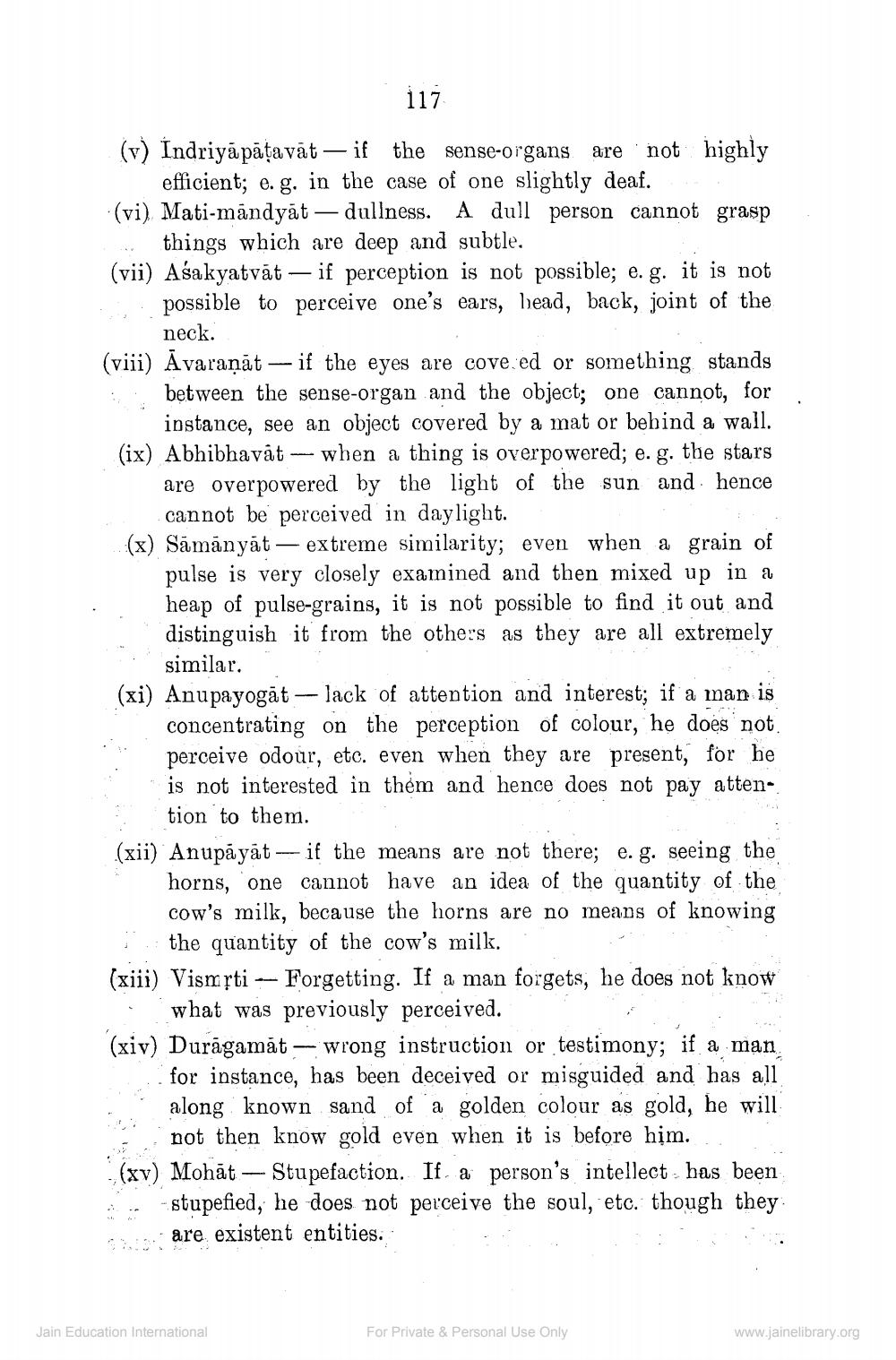________________
117
(v) Indriyā pātavāt - if the sense-organs are not highly
efficient; e. g. in the case of one slightly deaf. (vi) Mati-mándyāt — dullness. A dull person cannot grasp
things which are deep and subtle. (vii) Asakyatvāt — if perception is not possible; e. g. it is not
possible to perceive one's ears, bead, back, joint of the
neck. (viii) Avaraņāt - if the eyes are cove ed or something stands
between the sense-organ and the object; one cannot, for
instance, see an object covered by a mat or behind a wall. (ix) Abhibhavat - when a thing is overpowered; e. g. the stars
are overpowered by the light of the sun and hence
cannot be perceived in daylight. (x) Samanyát - extreme similarity; even when a grain of
pulse is very closely examined and then mixed up in a heap of pulse-grains, it is not possible to find it out and distinguish it from the others as they are all extremely
similar. (xi) Anupayogāt - lack of attention and interest; if a man is
concentrating on the perception of colour, he does not. perceive odour, etc. even when they are present, for he is not interested in them and hence does not pay atten
tion to them. (xii) Anupāyāt -- if the means are not there; e. g. seeing the
horns, one cannot have an idea of the quantity of the
cow's milk, because the horns are no means of knowing ☺ the quantity of the cow's milk. (xiii) Vismști -- Forgetting. If a man forgets, he does not know
what was previously perceived. (xiv) Durāgamăt - wrong instruction or testimony; if a man
for instance, has been deceived or misguided and has all along known sand of a golden colour as gold, he will
not then know gold even when it is before him. - (xv) Mohāt — Stupefaction. If a person's intellect has been i stupefied, he does not perceive the soul, etc. though they
are existent entities.
Jain Education International
For Private & Personal Use Only
www.jainelibrary.org




